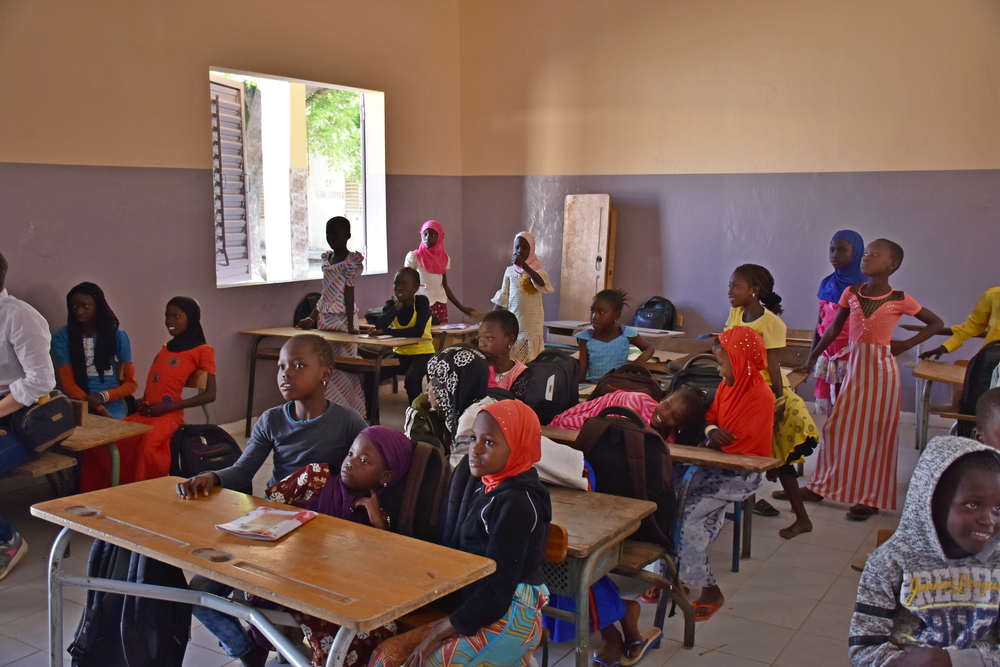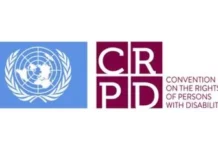In a recent study published in the journal Social Psychiatry and Psychiatric Epidemiology, an interdisciplinary team of researchers led by Ursula M. Read, Hanna Kienzler, Suzan Mitwalli, Yoke Rabaia, Lionel Sakyi, and Annabella Osei-Tutu delved into the intricacies of social inclusion for those living with psychosocial disabilities.
Focusing on the lived experiences in Ghana and the occupied Palestinian territory, the study sheds light on the challenges of integrating mental health narratives into different socio-cultural fabrics. Although differing in socio-political contexts, both nations have ratified the UN Convention on the Rights of Persons with Disabilities (CRPD), signaling a commitment to promoting the rights of those with disabilities, including psychosocial disabilities. The researchers write:
“Meaningful social inclusion for people with mental illness across the settings was perceived to require a holistic approach founded on empathy, tolerance, and acceptance to change public attitudes and understanding, alongside commitments from government, NGOs, and other agencies to provide consistent and equitable support and opportunities responsive to people’s changing needs.”
Delving deep into the dynamics of Ghana and the occupied Palestinian territory, the study captures a landscape wherein the implications of social inclusion are profoundly shaped by societal norms, political dynamics, gender roles, and other factors.

The team embarked on this investigation in response to a pertinent question: How do different societies interpret and act upon the principle of social inclusion when it comes to serious mental health challenges? Notably, while social inclusion has taken center stage in global mental health discussions, including in the 2022 WHO World Mental Health Report, there remains a lack of clarity around its real-world application.
Social inclusion in mental health emphasizes meaningful participation in community life. Key components include a sense of belonging, active community participation, autonomy, and available opportunities. However, several assumptions challenge this ideal. Communities, while often seen as protective and inclusive spaces, can also expose individuals with severe mental illness to discrimination and ridicule. Moreover, the pressure to conform to community norms can label those who differ as socially failing.
In addition, the concept of social inclusion isn’t universally consistent; it varies based on local customs, values, and hierarchies such as gender and age. Hence, while policies on social inclusion might seem universally beneficial, they might not consider the diverse experiences and challenges individuals face across different cultural and societal contexts.
The study, spanning five years (2017-2022), sought to understand the community experiences of individuals with mental health conditions in Ghana and the West Bank of the oPt.
In Ghana, with a population nearing 32 million, legacies of the slave trade and colonization have led to economic disparities, with a significant percentage of young men unemployed and two-thirds of the populace in unstable jobs. While Ghana has made advances in mental health policy and service, including the 2012 Mental Health Act and growth in community care, the emphasis remains on medication. There’s limited support outside pharmaceutical treatments, and people with psychosocial disabilities still face stigma, exclusion, and barriers to quality care.
Meanwhile, in the occupied Palestinian territory (oPt), the ongoing Israel-Palestine conflict has exposed its roughly 5 million residents to extreme violence and human rights abuses. This long-standing conflict has negatively impacted the mental health of Palestinians. Despite establishing 16 Community Mental Health Centres, oPt lacks a comprehensive mental health law, and community support is scarce, leaving those with psychosocial disabilities marginalized.
Using participatory action research and ethnographic methods, data was gathered through observations, discussions, and interviews involving people with psychosocial disabilities, their families, health providers, and community leaders. The field sites, selected for diverse urban/rural contexts, were in the West Bank’s governorates of Ramallah, Qalqilya, Bethlehem, and Jericho, and Ghana’s capital, Accra, and the Bono East region’s Kintampo.
Observations covered various settings like homes, workplaces, and places of worship, while semi-structured interviews focused on participants’ experiences, family dynamics, and societal relationships. The data, once gathered, was analyzed thematically, emphasizing core themes and cross-site comparisons.
Comparing Palestine and Ghana, critical cultural and societal similarities and differences were observed regarding social inclusion for people with serious mental illnesses. Despite shared community ideals of support and belonging, both settings exposed these individuals to prejudice and even violence.
Families often provided protection but could also be sites of conflict, constraint, and exclusion, particularly in contexts of poverty. Gender roles and societal norms, compounded by factors like political unrest in Palestine, shaped opportunities for social participation.
“Despite being highly valued, in practice, work was often experienced as stressful and discriminatory,” the researchers write. “Participants in both settings described being refused employment if they disclosed their mental health status, being dismissed from work when they experienced a relapse and distrust or hostility from co-workers or customers.”
Overall, social inclusion was only partially realized, with many desiring broader societal understanding and practical support opportunities rather than solely focusing on treatment. Participants in both regions stressed the importance of grassroots advocacy and collaboration across sectors, emphasizing the need for both policy development and action for genuine inclusion in areas like education, employment, and housing.
Despite the universal appeal for social inclusion, the study unveils the ambiguities of its practical application. As global discourse on mental health evolves, this study underscores the importance of adapting our strategies to respect, understand, and incorporate local cultural nuances and societal structures. Only through such intricate comprehension can we forge pathways to truly meaningful social inclusion.
****
Read, U. M., Kienzler, H., Mitwalli, S., Rabaia, Y., Sakyi, L., & Osei-Tutu, A. (2023). The ambiguities of social inclusion in mental health: learning from lived experience of serious mental illness in Ghana and the occupied Palestinian territory. Social Psychiatry and Psychiatric Epidemiology. Published online August 28, 2023. (Link)















Am I the only one who finds it highly hypocritical for those who intentionally DSM stigmatize, and other innocent people, to talk about “social inclusion.” For goodness sake, my former psychologist’s misdiagnosis, and defamation of me to my husband, destroyed my marriage. And that satanic, child abuse covering up, psychologist had the gall to call herself a “marriage counselor.”
Report comment
I had the same thought reading this article; it doesn’t take into account how stigmatizing it is to be labeled as “mentally ill”.
Report comment
In several historical contexts inclusion needs to be coerced by the state.
Rosa Parks, the civil rights movement, antisegregation, the double reunification of Germany, the perestroika, handling the AIDS epidemic, the dissolution of the USSR, the end of the Apartheid, the end of the Contra war, the labor rights movement, women’s right to vote, the end of the dirty wars in latin america, in Mexico the capacity for minors to stand before the Supreme Court!, were all coerced internally, by governmental exhaustion, by futility, or externally coerced.
Without falling into violence, like cancel culture or defamation instead of litigation in cases of alleged abuses. No roasting people on social networks. No silence on future victims safety even if understable on risk, futility and career preservation interests. At least proper exposure serves the common good, even if understandably, because exclusion fits into a larger narrative, for insiders/victims it’s way too difficult.
And, to claim a stake at staying on topic, as reviewed, this article does not seem to address those issues. It tries to provide understanding but it can be perceived as defending the status quo, the way things are. Just a little clearer now perhaps.
Obviating the criticism of things that, even if from other contexts, prevents to my mind, an understanding of how exclusion in mental health, ugggh!, fits into a larger framework of exclusion and more broadly agression. And omissions, the old I said nothing and now they come for me.
It might even seem petty in that light, but it’s my personal opinion based on the narrow focus, as corresponds to a research article, but maybe the introduction fits it succesfully in a broader context of exclusion/agression? That’s standard reseach practice, hence my question.
And of course, arguing about the broader context implies no prior censorship on speech, even privately regulated one. Who knows, like Ratatouille, a good idea might come from anywhere.
Are there any actionable proposals in the reviewed article?
I keep reminding myself that discrimination as racism, sexism (either misandry or mysoginy, or…), ageism, disableism, weightism, are in my personal experience used sequentially as agression normalized tools.
They are acceptable as tools not of oppresion, but violence, most common of the interpersonal kind. That sometimes get institutionalized, strcuturalized and therefore trying to solve them as a single form of aggression is a waste of fighting resources. It squeezes as another form of agression, not yet censored…
Intersectionality, the coincide not necessarily random, provides the opportunity to pick any difference to mount a campaing not just against an individual, but against a community…
Report comment
Just to clarify, when I write of roasting I am talking of speaking against one individual, not a group, in a way that provides no context, no solid evidence in the presented narrative to sustain a claim that a legal, moral or social transgession was commited by him or her.
Just on the missing specific claims narrative alone, leaving the reader to pull context and facts from their memory is a way to deceive the public difficult to fight or avoid. It ocurs at a subconcious almost instinctual level.
It’s a way to raise the mob against an individual without any evidence to back up such kind of attacks, even if not justified, understandable.
And being very frequent the behaviour imputed to such individual many other persons are likely to believe without evidence in the narrative that such transgression ocurred, even if it’s missing specifics to be counted as a claim.
It looks to me the reverse of proper exposure: from specific articulated complaints comes the support for the wider or grievous extent of the problem, be it misogyny, misandry, racism, disableism, pychiatrization, elitism, etc.
Unlike how many times it is used: from the wide extended or seriousness of the problem, without a rhetorical link, a given individual is imputed a transgression, without any evidence to support the link or the claim just from the narrative alone.
Thanks for being understanding with my tirades.
Report comment